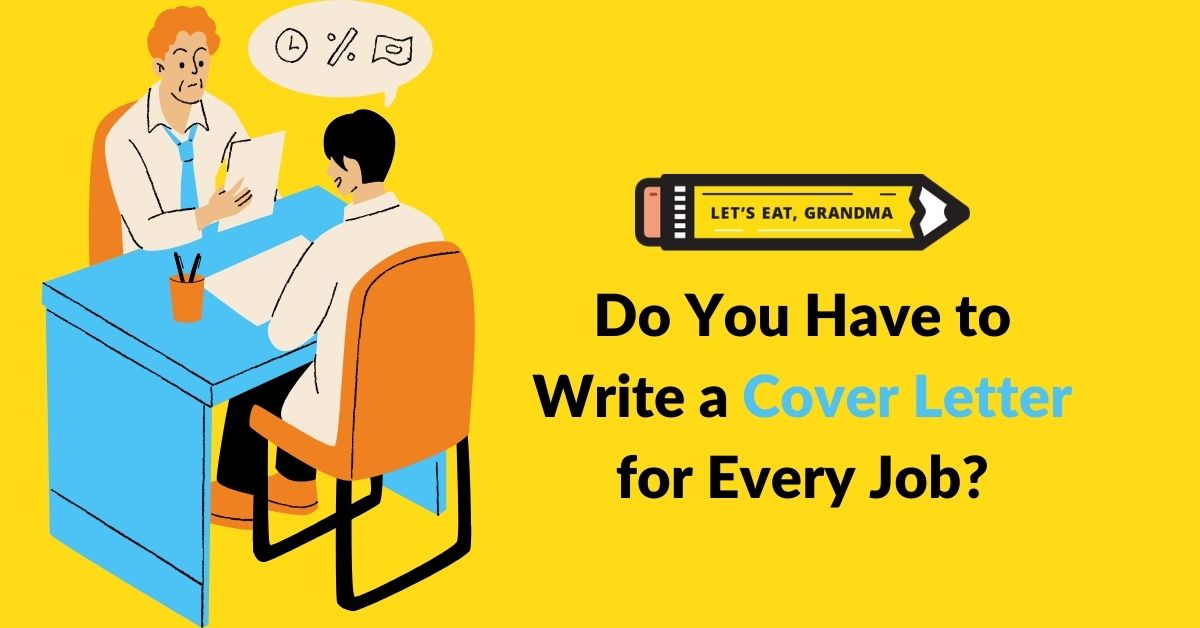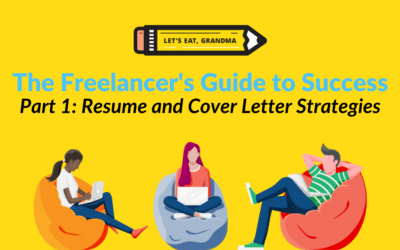If you’ve been on a job hunt recently, you’ve certainly seen the “cover letter” request in many job postings. They’ve grown to become an integral part of the job application process, so it’s important to know why that is.
At its core, a cover letter is a document you send along with your resume as a way for you to introduce yourself to a potential employer. It’s your chance to explain why you believe you’re the perfect fit for the job, and what skills and experiences make you stand out from the competition.
Now, the question is, do you have to write a cover letter for every job? After all, you’re sending in a resume and the employer can see your qualifications; so do you really need to write a separate introduction? You’re about to find out.

Photo by Tim Gouw on Unsplash
The changing landscape of job applications
Hiring processes are no longer what they used to be. While years ago, most hiring stages were done manually; now, employers are relying on technology more than ever before to determine if you’re the right fit for a job.
Think of it: there are online job applications, resume scanning software that empower employers to review hundreds of resumes in seconds, LinkedIn profiles that serve as a living version of your resume, and more.
These factors have heightened the debate of whether cover letters are still a necessary part of the job search process. Some argue that because of how automated the process is becoming, cover letters can serve as a bridge to the human aspect of the hiring process. Others argue that they’re becoming obsolete and applicants should focus on optimizing their resumes instead.
So, which is it?
Friendly Reminder: Is your resume in check before you move on to the cover letter writing part of the process? If you’re not sure, let’s make sure you’re all set through this free resume critique!
The advantages of including a cover letter
There’s no denying that cover letters can go a long way in taking your application up a notch. Here are some advantages that come with writing one:
1. It empowers you to add your personal touch
Sure, your resume is going to tell the employer about your qualifications, but it’s not going to tell them who you are. It’s hard for that to come through with a few bullet points and job titles.
A cover letter, on the other hand, is more flexible in structure, tone, and style, allowing you to showcase your personality and emphasize any unique qualities you have that could help you stand out.
2. It allows you to clarify career gaps/changes/other issues
If you’ve been off the job market for a while, have had several job changes, or made a career shift altogether, you know how it feels to wish you had the chance to explain yourself. That’s precisely what a cover letter does.
If you’re transitioning to a new industry or position, writing a cover letter about your career shift is essential. It helps explain the logic behind your decision and provides context as to why certain elements of your resume may not be directly relevant. You can use your cover letter to expand on the experience that you do have and how it developed transferable skills that would help you in the industry you’re applying for.
It gives you the perfect opportunity to explain anything that could otherwise be seen as a red flag on your resume, and present yourself in an honest, yet positive light.
You can also use it as a chance to address any other issues that could come up regarding your application (such as a lack of experience in the desired role).

Photo by Bermix Studio on Unsplash
3. It serves as a distinguishing factor
When you’re looking for a job, you’re always looking for a way to stand out from the competition. Well, a cover letter can be just the thing you need to achieve that. That’s especially true if it wasn’t required of you in the first place.
Put yourself in the employer’s shoes: out of 100 resumes, who stands out the most and is likely to land an interview? According to research, it’s the person who took the time and effort to write a tailored cover letter explaining why they should be chosen over all other candidates. But of course, it has to be a well-written cover letter that focuses on the qualifications and experiences relevant to the job.
4. You can show off your skills in action
If you’re applying for a role in advertising, marketing, or any other creative field, writing skills are a must-have for the job. In this case, a cover letter is considered a writing sample – an opportunity to demonstrate your ability to write and communicate in a persuasive, professional, and articulate manner. Without it, employers will have no idea about your writing skills and may not be willing to take a chance on you.
Likewise, with remote jobs, the cover letter plays a crucial role because not everyone is equipped to work remotely. Because of the doubts surrounding this, it’s essential to write a cover letter that highlights your ability to adapt and survive in a remote working environment.
Discuss remote-related skills such as your communication abilities, capacity for self-management, or proficiency with remote work tools (e.g., Zoom, Slack, Asana, etc.) You can also provide stories of any prior experience you have working remotely or explain how you’re proactively preparing yourself to do so if you haven’t.
When is a cover letter not necessary?
Yes, cover letters can be a powerful way to get your foot in the door, but there are times when they’re not necessary and shouldn’t be written. Here are some examples:
1. When there’s an explicit statement in the job posting
Some job postings explicitly ask you not to include a cover letter. If that’s the case, then you should absolutely follow the instructions and just send in your resume (along with any other required documents).
2. During an informal hiring process
Not all hiring processes are created equal – some tend to be less formal, more laid-back, and more fast-paced, requiring no cover letter.
In the startup environment, for example, you may find yourself in a situation where you’ve had intelligent conversations with the employer and they’re already interested in moving forward with you. Similarly, if you’ve been referred by a mutual connection, chances are they already know enough about you so there isn’t a need for additional documentation.
3. For high-volume applications for non-office jobs
Certain non-office jobs in industries such as service or construction run hiring cycles very frequently. And almost always, they receive a high volume of applications in a very short amount of time. Such roles usually need to be filled quickly, which is why the priority goes to the speed of the hiring process, and cover letters are typically bypassed.
In this case, employers may prefer applicants to only provide their resume and avoid sending any other documents (because they won’t be read). Instead, the attention is shifted to the interview itself.

Photo by Iwaria Inc. on Unsplash
Best practices for writing a cover letter
Before we wrap up, here are some key points to keep in mind when writing a cover letter (if you choose to complement your resume with one!):
- Make it skimmable by maintaining an easy-to-follow outline format
- Keep it concise – no more than one page in length is ideal
- Tailor it to each job you apply to
- Begin with a targeted hook in the first sentence or two
- Always think “what’s in it for the employer” before writing any sentence – make it more about how you can add value to the business, not what you can get out of it
- Use concrete examples and evidence to back up any claims or statements you make about yourself
- Proofread multiple times to ensure there are no typos or errors in grammar/punctuation
- End with a call to action (e.g., expressing interest in setting up an interview or discussing the job further)
Conclusion
So, do you have to write a cover letter for every job? The answer is yes – it’s preferable to do so, even when it’s not required. A cover letter is what makes you not “just another applicant” – it puts a virtual face to your resume, and paints a vivid picture of who you are, what your skills and experience are, and why the employer should consider hiring you.
Of course, there are exceptions to the rule, such as when an employer explicitly states that no cover letter is required. However, if you’re ever in doubt, always err on the side of caution and include one anyway..
And if you’re not writing cover letters just because you can’t seem to get it right and find it too hard of a process, maybe that’s a sign that you need a professional cover letter writing service that can help you create the perfect document and save you time in the process.
Ready for more job search help?
Sign up for a free Senior Writer Resume Critique to see what’s holding you back from landing interviews. One of our top professional resume writers will give you personalized feedback on the top 3 items you can improve based on our expert practices!




